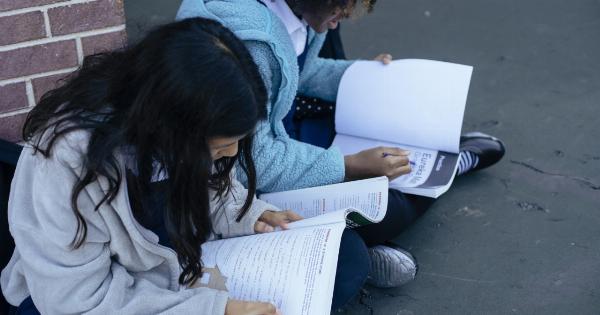Sinusitis refers to the inflammation and swelling of the sinus passages, which can be quite distressing for children.
The sinuses are air-filled cavities located within the bones of the face and skull, and when they become blocked and filled with mucus, it can lead to sinusitis.
Symptoms of Childhood Sinusitis
It is important to recognize the signs and symptoms of childhood sinusitis in order to seek appropriate treatment. Some common symptoms include:.
- Nasal congestion
- Facial pain or pressure
- Headache
- Cough
- Post-nasal drip
- Bad breath
- Fever
- Fatigue
Causes of Childhood Sinusitis
Sinusitis can be caused by various factors, including:.
- Viral infections, such as the common cold
- Bacterial infections
- Allergies
- Deviated nasal septum
- Nasal polyps
In children, sinusitis is often associated with respiratory tract infections, allergies, or anatomical abnormalities that obstruct the sinus drainage.
It is important to identify the underlying cause to effectively manage and prevent recurrent episodes of sinusitis.
Diagnosis of Childhood Sinusitis
If your child exhibits symptoms of sinusitis, it is crucial to consult a healthcare professional. The doctor will perform a thorough physical examination and may order additional tests, including:.
- Nasal endoscopy: A small, flexible tube with a light and camera attached is inserted into the nose to examine the sinuses.
- Imaging studies: X-rays or CT scans can provide detailed images of the sinuses and help identify any abnormalities.
- Allergy testing: If allergies are suspected, skin or blood tests may be conducted to determine specific allergens triggering sinusitis.
Treatment Options for Childhood Sinusitis
Once diagnosed, the healthcare provider may recommend the most appropriate treatment based on the cause and severity of sinusitis. Some common treatment options include:.
- Saline nasal irrigation: This involves flushing the nasal passages with a saltwater solution to relieve congestion and remove mucus.
- Nasal corticosteroids: These nasal sprays help reduce inflammation and swelling in the sinuses, alleviating symptoms.
- Antibiotics: In cases of bacterial sinusitis, antibiotics may be prescribed to combat the infection. However, they are not effective against viral sinusitis.
- Allergy medications: If allergies contribute to sinusitis, antihistamines or allergy shots may be recommended.
In severe cases or when conservative treatments fail, surgical intervention may be necessary to remove nasal polyps, correct a deviated septum, or improve sinus drainage.
Preventing Childhood Sinusitis
While some causes of childhood sinusitis may be unavoidable, there are preventive measures that can help reduce the risk of frequent or severe episodes. These include:.
- Promoting good hand hygiene to minimize the spread of viral infections
- Encouraging regular vaccinations to prevent respiratory infections
- Managing underlying allergies with appropriate medications
- Ensuring a clean and dust-free living environment
- Teaching proper nasal hygiene, such as regular saline rinses or use of nasal sprays
When to Seek Medical Attention
It is important to consult a healthcare professional if your child experiences any of the following:.
- Persistent or worsening symptoms
- High fever
- Severe facial pain or swelling
- Changes in vision
- Neck stiffness
These symptoms may indicate a more serious condition that requires prompt medical intervention.





























